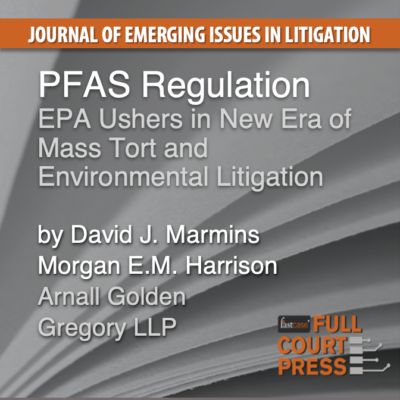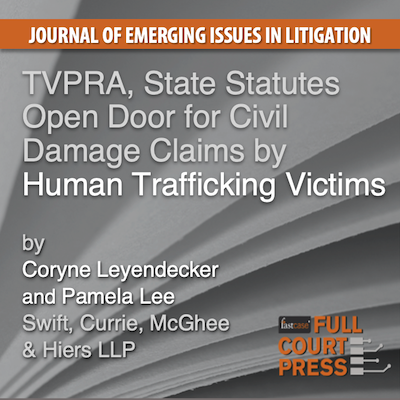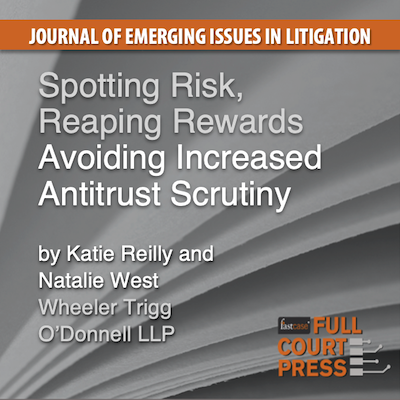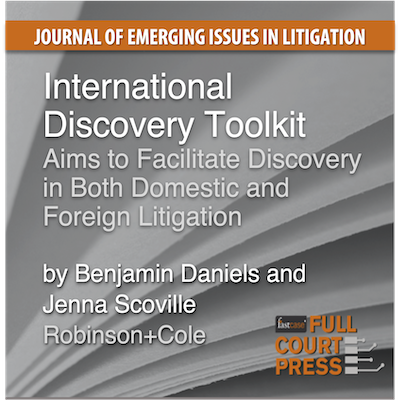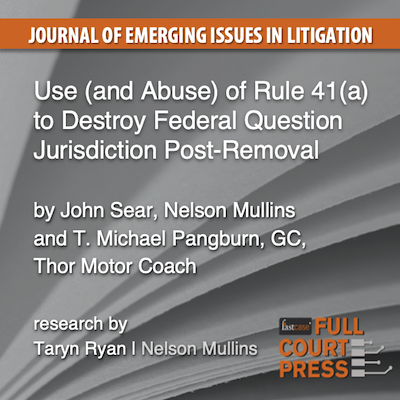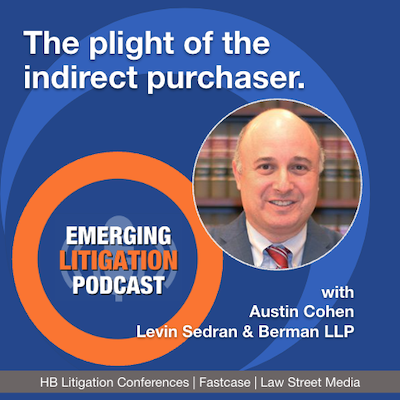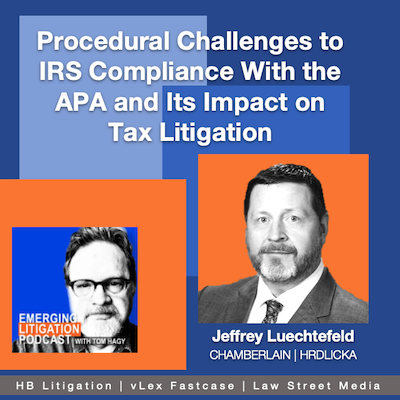Emerging Litigation Podcast
The EPA’s New PFAS Safe Drinking Water Rule with John Gardella
In this episode, we dive into one of the hottest topics in environmental law right now: PFAS. Specifically, our guest, John Gardella of CMBG3 Law talks about the EPA’s new PFAS Safe Drinking Water Final Rule, which mandates acceptable levels of PFAS in public water systems. John is a leading voice in PFAS litigation and a recognized thought leader, known for his expertise in environmental and toxic tort litigation. Tune in now!
The Long and Brawny Arm of the Foreign Corrupt Practices Act with Mark Bini and Tom Suddath
Hey! Corporate corruption costs $5 trillion a year! In this episode two former prosecutors talk about the Foreign Corrupt Practices Act, the government’s leading weapon in its global war on corporate crime. They also talk about the new statute on the block, the Foreign Extortion Prevention Act, and the many complexities of this fascinating area of the law. Check out our interview with Reed Smith attorneys Mark Bini and Tom Suddath. They know this area of the law inside and out.
False Claims Act, Health Care Whistleblowers, and Whistling in the Wind with Justin Lugar
In this episode, we discuss How whistleblower cases come about, the benefits of rewarding whistleblowers, how things are done differently outside the U.S., what’s driving the acceleration of this area of law, and best practices when your company is served with guest Justin Lugar of WoodsRogers. Drawing on his background as both public servant and private practitioner, Justin walks through these issues and others.
A Shameless Plug for Our Content Services
Your content marketing is everything you’ve ever dreamed of. Right?

Critical Legal Content was founded by Tom Hagy, former Editor & Publisher of Mealey’s Litigation Reports and VP at LexisNexis, founder of HB, current litigation podcaster and editor-in-chief. CLC’s mission is to help smaller firms and service providers not only create content — blogs, articles, papers, webinars, podcasts (like the stuff on this site) — but also to get it out there. How? Via social media, this website, your website, and potential via our podcast and journal which we publish in collaboration with vLex Fastcase and Law Street Media. The goal is to attract readers and dizzy them with your brilliance.
*Inspired by actual events.
Create content like a real legal publisher.
Emerging Litigation Journal
Subway Surfing Suit Against Meta and TikTok: Setting the Stage for Social Media Liability
Social media platforms are under mounting legal pressure as courts scrutinize how algorithms amplify dangerous viral trends. In Nazario v. ByteDance Ltd., a New York judge allowed a wrongful death lawsuit against Meta and TikTok to move forward after a teen died attempting a “subway surfing” stunt allegedly promoted by their platforms. In this article, Tom Hagy examines how the decision challenges long-standing Section 230 protections and signals a shift toward treating social media as potentially defective products when design and targeting harm young users. This case—and others involving viral challenges and youth safety—may redefine platform liability for years to come.
Climate Change Law: Tension Increases Over Governmental and Corporate Responsibility
The world’s leaders still don’t agree on what, if anything, to do about climate change – despite mounting evidence that, as a planet, we are in the soup. A major ruling from the International Court of Justice says states have an obligation to save the planet, as the U.S. president is enthusiastically sprinting the other way, inspiring cheers from his base and jeers from scientists. As for domestic litigation designed to pin liability on the fossil fuel industry, a case in South Carolina faltered as another in Hawaii is clearing hurdles. Read the update from Tom Hagy.
CEO Depositions and the Apex Doctrine with Rachel Lary on the Emerging Litigation Podcast
Can a CEO be forced to sit for a deposition? In this episode of the Emerging Litigation Podcast, national trial lawyer Rachel M. Lary of Lightfoot, Franklin & White unpacks the Apex Doctrine—a legal standard designed to shield high-ranking executives from unnecessary depositions. Rachel explains how courts assess executive knowledge, alternative discovery options, and the growing body of case law shaping this issue across jurisdictions. A must-listen for litigators navigating discovery strategy in high-stakes cases.
HB Webinars on CeriFi LegalEdge
PFAS Litigation: Predicted Trends Given Regulatory Changes
Every week, the PFAS litigation and regulatory landscape changes dramatically. The EPA presses forward full steam ahead with numerous PFAS regulations, while the states have proposed hundreds of pieces of legislation related to PFAS in the last three years. Meanwhile, class action litigation, environmental pollution litigation, and greenwashing suits are being filed against companies at a dramatically increasing rate year after year. In this CLE webinar, CMBG3 Law attorney John Gardella discusses the latest on regulatory and litigation issues related to PFAS and how they will impact corporations.
The Medical Monitoring Tort Remedy
The medical monitoring tort remedy – allowing for medical monitoring without physical injury – is recognized in 14 states and not allowed in 23. The law is divided in two states while the rest have not specifically addressed the issue. States that allow medical monitoring to do so when a group of claimants is at increased risk of disease or injury due to exposure to a known hazardous substance or a dangerous product as the result of a defendant’s conduct. Under this tort remedy, claimants are tested periodically, for an agreed or decided period, usually between 10 and 40 years. In this CLE webinar, Gentle Turner & Benson LLC attorneys Edgar (“Ed”) C. Gentle III and Katherine (“Kip”) A. Benson discuss the evolution of the medical monitoring tort, related cases, tests to determine whether the tort should be applied, types of monitoring, and the arguments for an against medical monitoring.
Adapting to AI: Taking A Practical Approach Governance, Introductory Level for New Attorneys and Legal Staff
Robinson+Cole attorney Blair Robinson and knowledge management leader Liz Salsedo discuss how attorneys and legal staff can adapt to AI by taking a practical approach to governance, addressing its potential and attendant risks, legislative and regulatory considerations, and how to incorporate AI most responsibly into their legal practice or business.








